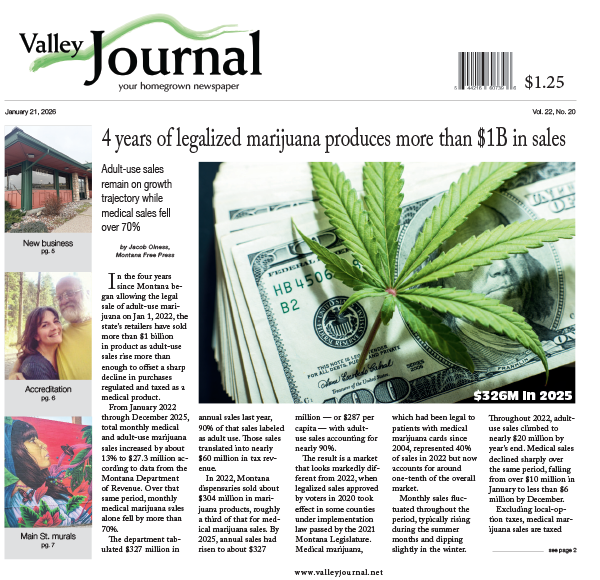Valley Views
What is power?
Hey savvy news reader! Thanks for choosing local.
You are now reading
3 of 3 free articles.
Recent governmental events (kidnapping people off the streets, arresting dissenters, blocking free speech, withholding monies) brought back a few thoughts.
One (from a political science class) was, “Power is seized – not granted.” The other (from a seminar on negotiations) was, “The one who doesn’t care tends to win.” Both ideas have relevance in today’s societal confusion.
Power can be used beneficially or harmfully. In either case there is a continuum of definitions. At one end there are soft generic descriptions such as: the ability to act or produce an effect; and having influence over others. Further on come stronger words indicating official, legal, or moral authority. The statement, “I/we have a right to (something)” fits here. At the other end of the continuum are stronger phrases, such as: having absolute control over others; and “I can hurt you.”
Humans are social creatures. Early on, we develop brain neural circuitry to pay attention to (and care about) other people. The pattern is called “empathy.” Having this concern for others develops mutual-aid social networks which enhance reciprocal sustenance, protection, and TRUST. This helps maintain relationships, peaceful conditions - and survival.
But there can be impaired brain circuitry in which important social cues are not recognized. This is called “empathy erosion.” Inappropriate responses can result - including “not caring.” This easily results in ignoring the emotions of others – and the mutual trust becomes broken.
Negotiations are a process in which both parties find some resolution. But when one side doesn’t care about the other - negotiations mean less. Then, the “ I CAN HURT YOU” theme dominates. This applies between individuals – as well as in political processes (domestically and worldwide).
If power is “seized” – this can be domination by physical brute force. But also consider the processes of deception, manipulation, and con-artistry. One-way-or-another, there are many tools to arrive at domination by seizing.
If “the people” actually vote for (or simply allow) authoritarianism … does that mean that the hierarchy of “power is seized” really IS the default truth about humanity? Is it the destiny of us all? Is it our human societal bumper sticker?
The current Republican agenda seems bent toward the idea that power is, indeed, “seized.” Trump (and the GOP) are ignoring the traditional rules of accepting court rulings – therefore seizing (assuming) authority for themselves.
Further, some court rulings (as well as civil decisions by citizens, law firms and universities) are giving authoritarians allowances to overpower them.
Our USA democratic political experiment is an exploration into how to “grant power.” It involves the development of “trust” – (having faith in the good intentions of the grantee) - from family, friends, and lovers to international partnerships.
Is it even possible that “power” can really be non-violently retained by “the people?” Is it possible for humans to move toward cooperative societies which care for and help one another?
Can/will “the people” show that they can (in effect) seize their own power? Many people seem to think so and are increasingly speaking out. This is an evolving process of defining who “we” might be. Stay tuned. In the meantime, wind up your courage - seize your own power - and speak out.
















